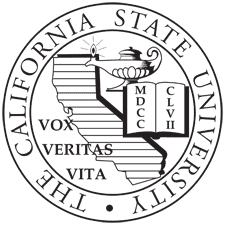 California State University trustees approved a 12 percent tuition hike today that would take effect this fall. The increase is expected to help close the budget gap created by $650 million in state funding cuts.
California State University trustees approved a 12 percent tuition hike today that would take effect this fall. The increase is expected to help close the budget gap created by $650 million in state funding cuts.
CSU officials said the tuition increase will generate $150 million for the CSU system, and the remaining $400 million shortfall will be saved through cutbacks and through an additional 10 percent tuition hike approved in November.
The board is also planning to reduce enrollment by roughly 10,000 students statewide. Campus budgets will be reduced by a combined $281 million, according to CSU officials.
The increases will bring annual tuition for CSU campuses to $5,472.
Students and faculty have criticized the board because of the hikes, which became necessary when tax increases proposed by Gov. Jerry Brown were blocked by the Legislature.
Brown himself issued a letter today criticizing the board for planning to raise the salary for incoming San Diego State University President Elliot Hirshman by $100,000 while asking students to pay dramatically increased tuition.
The CSU system faces additional cuts of $100 million mid-year if state revenue projections are not met, and are bracing to potentially make additional cuts or fee increases.
Prior to the vote, CSU officials said that state funding to the CSU system is roughly the same as it was during the 1998-99 school year; however, at that time the system served 72,000 fewer students.
Adjusted for inflation, CSU received more than $10,000 per student from the state in 1998-99, but now receives less than $6,500 per student.
One-third of the revenue from the tuition increase will be allocated for financial aid, but many are still concerned that lower income students will still be faced with untenable costs that may keep them out of college.
California State University, Los Angeles psychology professor Kimberly King addressed the board before their vote, raising concerns that the proposed increases would hurt all students but lower income students in particular.
“The students that are paying will be paying more and getting less,” she said.
She also said that the board should consider the effect on undocumented students, who will be ineligible for financial aid because of state and federal law, and potentially unable to receive an education.
The board acknowledged these concerns, and officials said they would continue to lobby the Legislature for a change in funding structure. The dilemma, they said, was that revenue was unavailable from the state because of the structure of state funding and reduced revenue resulting from the economic downturn.
“We have nothing but dilemmas here on a continuing basis,” Chancellor Charles B. Reed said.
Scott Morris, Bay City News
Want more news, sent to your inbox every day? Then how about subscribing to our email newsletter? Here’s why we think you should. Come on, give it a try.









